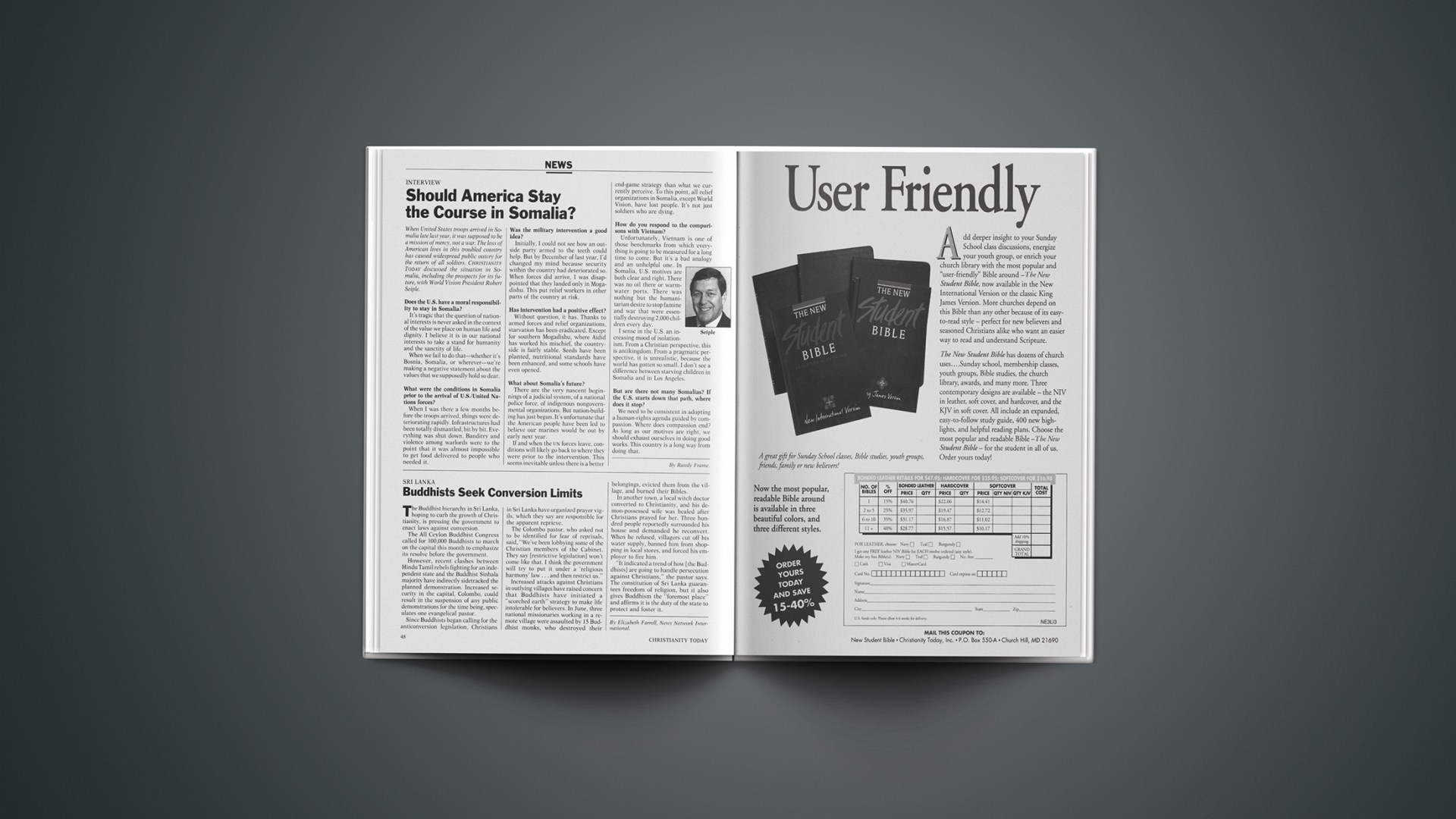When United States troops arrived in Somalia late last year, it was supposed to be a mission of mercy, not a war. The loss of American lives in this troubled country has caused widespread public outcry for the return of all soldiers. CHRISTIANITY TODAY discussed the situation in Somalia, including the prospects for its future, with World Vision President Robert Seiple.
Does the U.S. have a moral responsibility to stay in Somalia?
It’s tragic that the question of national interests is never asked in the context of the value we place on human life and dignity. I believe it is in our national interests to take a stand for humanity and the sanctity of life.
When we fail to do that—whether it’s Bosnia, Somalia, or wherever—we’re making a negative statement about the values that we supposedly hold so dear.
What were the conditions in Somalia prior to the arrival of U.S./United Nations forces?
When I was there a few months before the troops arrived, things were deteriorating rapidly. Infrastructures had been totally dismantled, bit by bit. Everything was shut down. Banditry and violence among warlords were to the point that it was almost impossible to get food delivered to people who needed it.
Was the military intervention a good idea?
Initially, I could not see how an outside party armed to the teeth could help. But by December of last year, I’d changed my mind because security within the country had deteriorated so. When forces did arrive, I was disappointed that they landed only in Mogadishu. This put relief workers in other parts of the country at risk.
Has intervention had a positive effect?
Without question, it has. Thanks to armed forces and relief organizations, starvation has been eradicated. Except for southern Mogadishu, where Aidid has worked his mischief, the countryside is fairly stable. Seeds have been planted, nutritional standards have been enhanced, and some schools have even opened.
What about Somalia’s future?
There are the very nascent beginnings of a judicial system, of a national police force, of indigenous nongovernmental organizations. But nation-building has just begun. It’s unfortunate that the American people have been led to believe our marines would be out by early next year.
If and when the UN forces leave, conditions will likely go back to where they were prior to the intervention. This seems inevitable unless there is a better end-game strategy than what we currently perceive. To this point, all relief organizations in Somalia, except World Vision, have lost people. It’s not just soldiers who are dying.
How do you respond to the comparisons with Vietnam?
Unfortunately, Vietnam is one of those benchmarks from which everything is going to be measured for a long time to come. But it’s a bad analogy and an unhelpful one. In Somalia, U.S. motives are both clear and right. There was no oil there or warm-water ports. There was nothing but the humanitarian desire to stop famine and war that were essentially destroying 2,000 children every day.
I sense in the U.S. an increasing mood of isolationism. From a Christian perspective, this is antikingdom. From a pragmatic perspective, it is unrealistic, because the world has gotten so small. I don’t see a difference between starving children in Somalia and in Los Angeles.
But are there not many Somalias? If the U.S. starts down that path, where does it stop?
We need to be consistent in adopting a human-rights agenda guided by compassion. Where does compassion end? As long as our motives are right, we should exhaust ourselves in doing good works. This country is a long way from doing that.
By Randy Frame.










